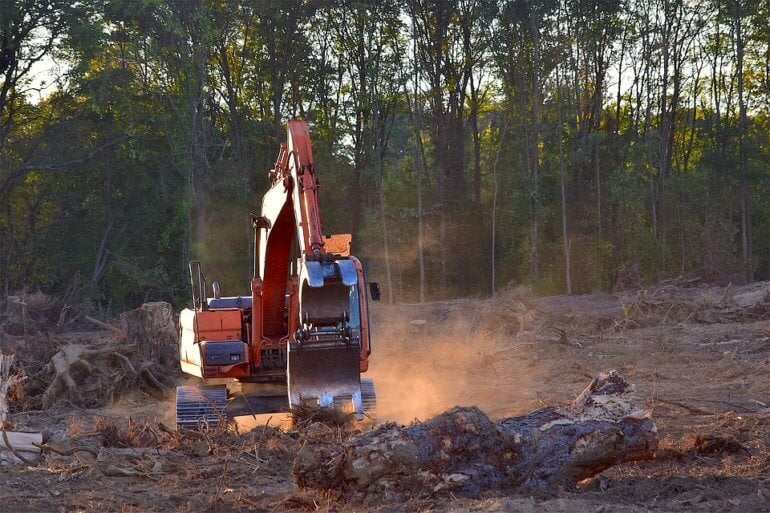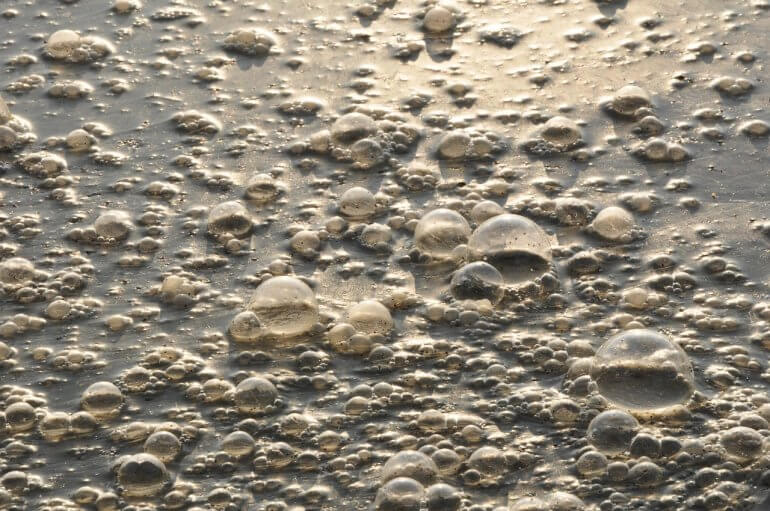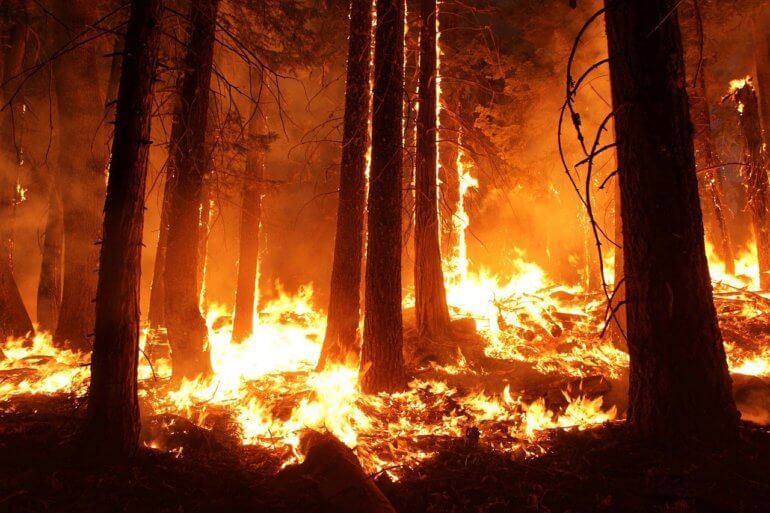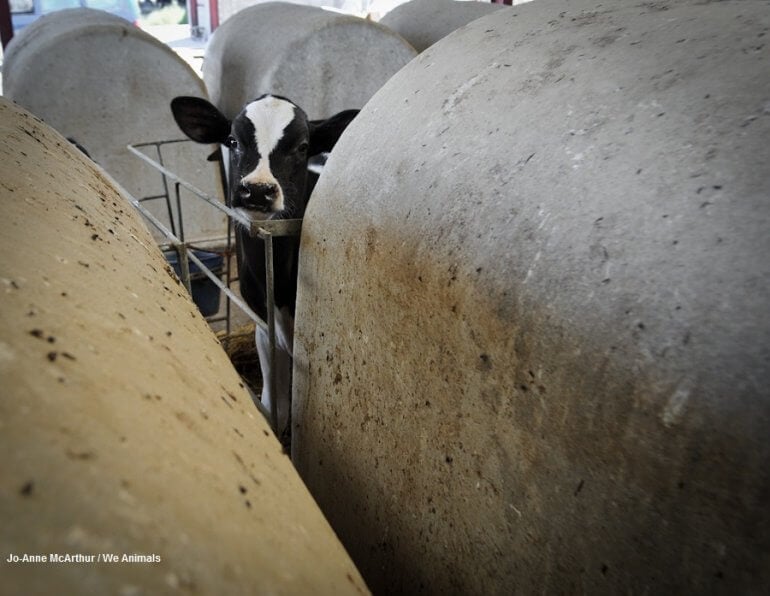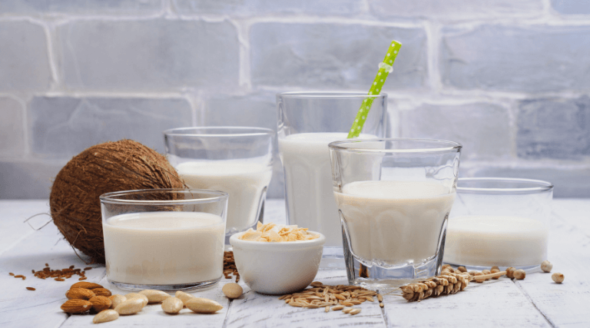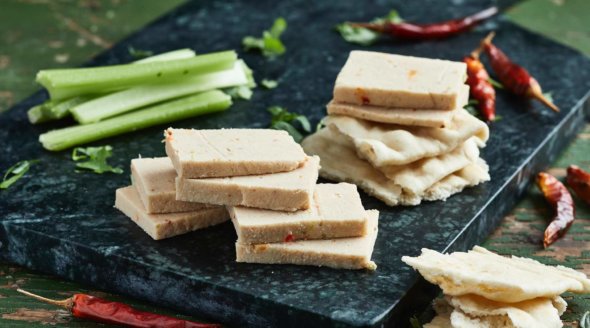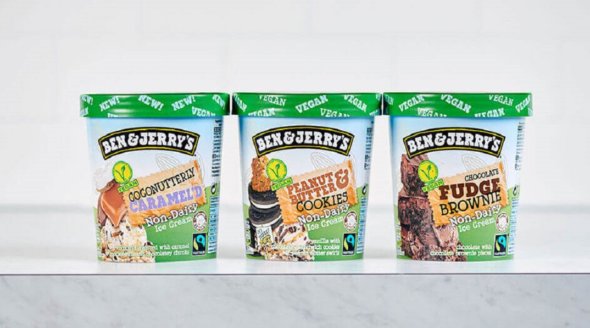19 Facts to Debunk Dairy Myths
Plant-based or dairy milk – which is better for the planet? As animal-exploiting industries continue to spout misleading claims, we’ve checked the facts. Here are 19 points to keep in mind when choosing a milk.
Let’s start with deforestation.
- Greenpeace estimates that 90% of the world’s soya crop is fed to animals raised for human consumption.
- Only about 6% of soya beans grown worldwide are consumed by humans.
- Animal agriculture is the major driver of deforestation. According to the Global Forest Atlas, 80% of deforestation in the Amazon is driven by cattle ranching, either to graze cows or grow soya to feed them. Palm oil products are also fed to cows, driving deforestation in Asia and South America.
- Soya milk isn’t the only option. Non-dairy milks are also made from oats, rice, almonds, peas, and more – and like soya milk, all of them are better for the environment than cows’ milk.
Now, let’s look at water and land use.
- Dairy farming is an inefficient use of land. In the UK, producing a glass of cows’ milk requires over 10 times more land than producing a glass of oat milk. If people stopped consuming dairy, land could be repurposed as natural habitats for hedgehogs, birds, and other struggling wildlife populations.
- Almonds can be the most water-intensive crop used for plant-based milk, yet they still require less water than is needed to produce the same amount of cows’ milk. And traditional almond production in Southern Europe requires no irrigation at all.
What about the climate crisis?
- Globally, the 13 biggest dairy companies combined are responsible for the same level of greenhouse-gas emissions as the entirety of the UK. Farms are not required to reduce emissions, but the Committee on Climate Change, a government advisory group, recommends that everyone drink less cows’ milk.
- Cows produce methane when they belch or fart, and raising millions of them for dairy is a big contributor to methane emissions, which cause climate change. Methane is 28 times more powerful than carbon dioxide at trapping heat in the atmosphere, and global emissions are at their highest recorded level.
- Imported plant-based milks have much smaller carbon footprints than milk from locally raised cows.
- Switching to organic farming isn’t a solution. A study found that switching to 100% organic food production in England and Wales would increase greenhouse-gas emissions!
- Producing dairy using grass-fed cows isn’t the answer to curbing greenhouse-gas emissions, either. Some people claim that grazing animals can help draw carbon out of the atmosphere and store it in the soil. But even in systems in which cows eat only grass, the soil doesn’t absorb nearly enough greenhouse gases – the soil carbon storage offsets only 20% to 60% of the total emissions from grazing cows.
- If you are vegetarian to help tackle climate change, go vegan to have the maximum impact. An extensive University of Oxford study found that animal-derived foods, including meat, eggs, cows’ milk, and fish, all have larger carbon footprints than their plant-based equivalents. The lead author of the study said, “A vegan diet is probably the single biggest way to reduce your impact on planet Earth, not just greenhouse gases, but global acidification, eutrophication, land use and water use. It is far bigger than cutting down on your flights or buying an electric car.” Eating vegan will lower your food-based carbon emissions by up to 73%, more than eating vegetarian or flexitarian.
And don’t forget that dairy stinks.
- Muck spreading – spraying fields with liquid manure from the dairy or meat industry – is a common agricultural practice. Given that manure is produced in vast quantities and contains high levels of ammonia – which is a threat to human health and can cause early death – muck spreading is becoming an increasing environmental and public health concern. According to the National Farmers’ Union, cattle farming is responsible for 44% of the UK’s total ammonia emissions.
- Manure also pollutes waterways. Slurry run-off from dairy farms is wrecking our countryside. According to an Environment Agency survey, 95% of dairy farms in one catchment area in the UK failed to meet water-protection standards and half of them were polluting the river during inspection.
Still have doubts? Here are five more points to consider:
- You can get all the calcium you need from plants – including beans, leafy green vegetables, tofu, and whole grains.
- Humans are the only mammals who drink the milk of another species. Cows produce milk for their babies, not for us. Consuming dairy is cruel, unnatural, and unnecessary.
- Dairy tears families apart. On the majority of the UK’s 9,000 dairy farms, calves are taken away from their mothers 24 to 48 hours after birth. The separation is traumatic for mother and baby. A BBC Disclosure investigation showed that male calves – considered a “waste product” by the dairy industry because they don’t produce milk – are either shot in the head or transported on a long, terrifying journey to Europe to be raised in extreme confinement for veal.
- Even on small-scale, organic, grass-fed dairy farms, animals are exploited for profit. Cows are artificially inseminated, their babies are taken away, and they’re treated like milking machines. There’s no justification for continuing to abuse cows for their secretions.
- Farmers are already switching to growing plants. In recent decades, the number of people employed in animal agriculture has fallen as consumption of cows’ milk and meat has decreased. PETA is helping farmers make the transition away from dairy and cash in on the opportunity presented by the burgeoning plant-based milk industry. Businesses and traditions naturally evolve as part of societal change – and this progress should be encouraged, not deterred.
The Choice Is Yours
Now that you know the facts, the choice is yours. Will you continue contributing to the climate crisis, or will you help tackle it by choosing oat milk over cows’ milk? Will you choose cruelty or compassion?
Ditching dairy is easy. Looking for the best vegan milk, cheese, or ice cream? We’ve got it all covered!

